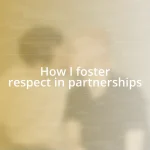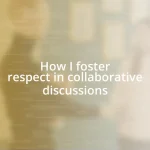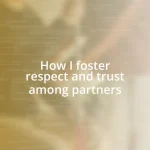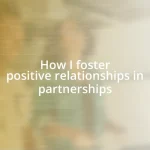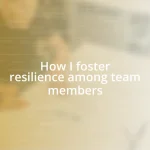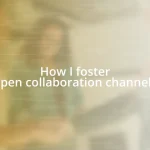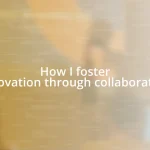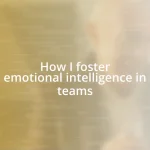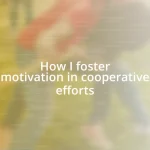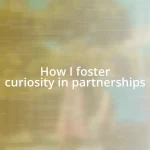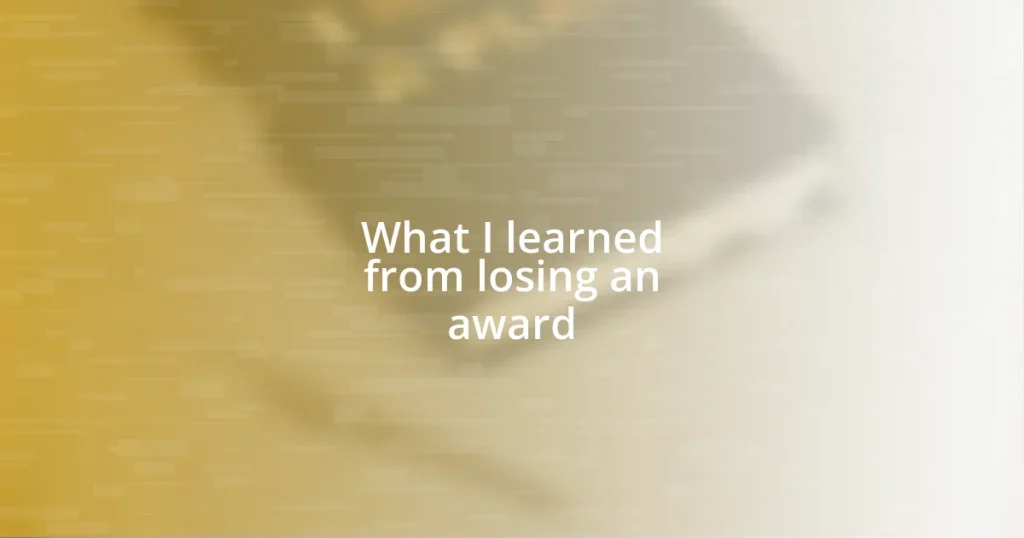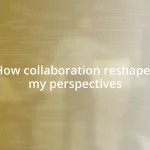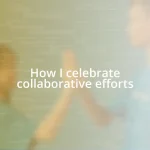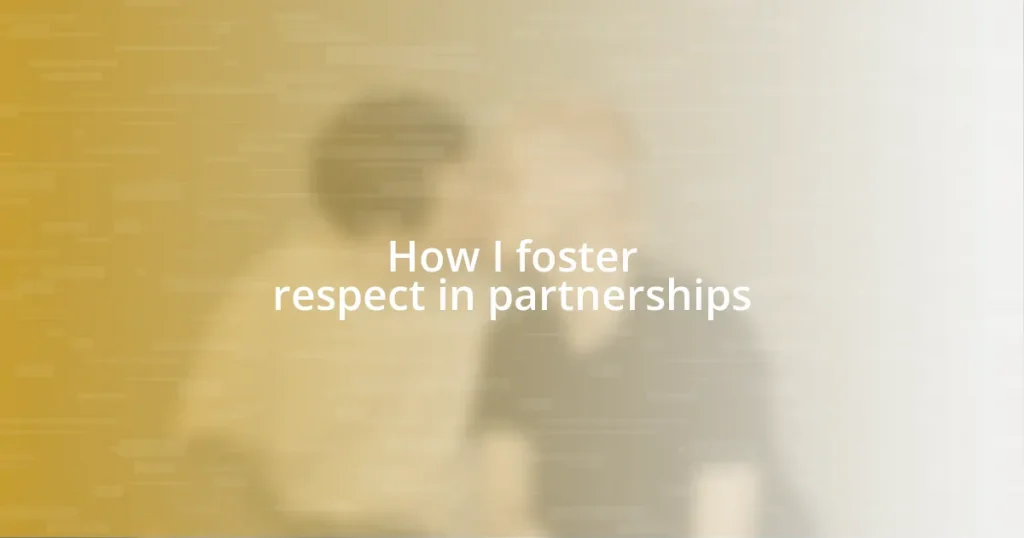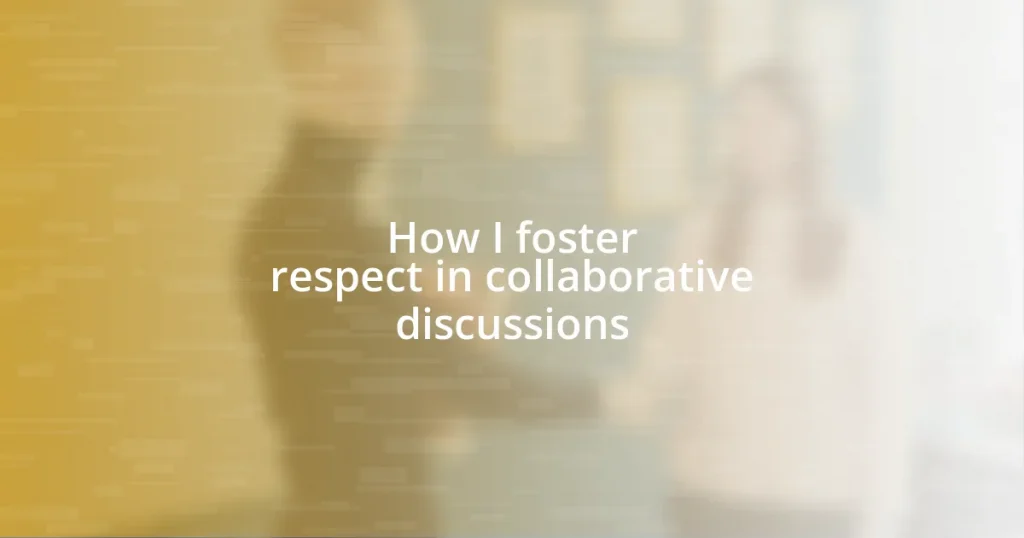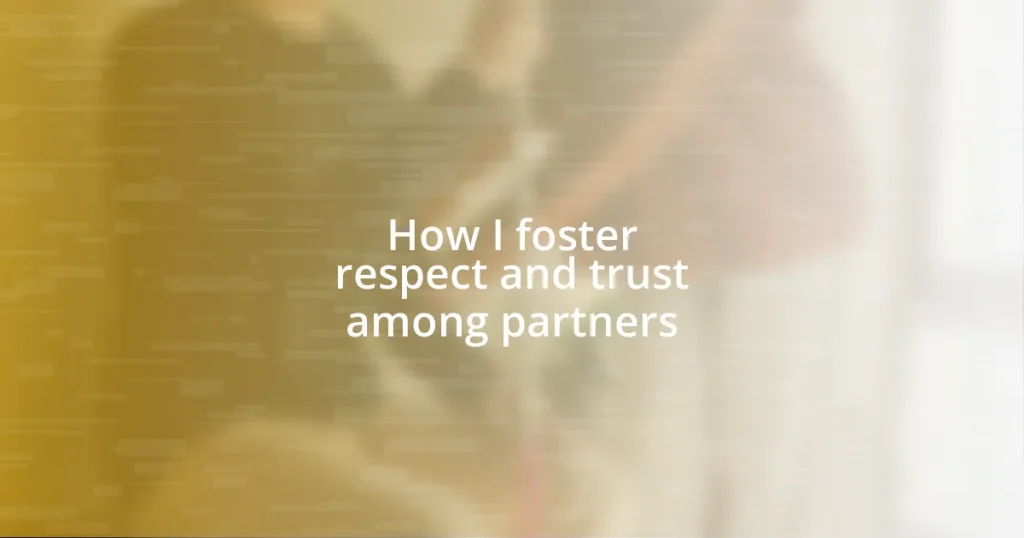Key takeaways:
- Losing an award prompted deep introspection, leading to a redefinition of personal success beyond external validation.
- Embracing disappointment transformed into a tool for growth, fostering resilience and deeper connections with the community.
- Sharing insights and seeking feedback from others cultivated a supportive environment, allowing for personal and professional development.
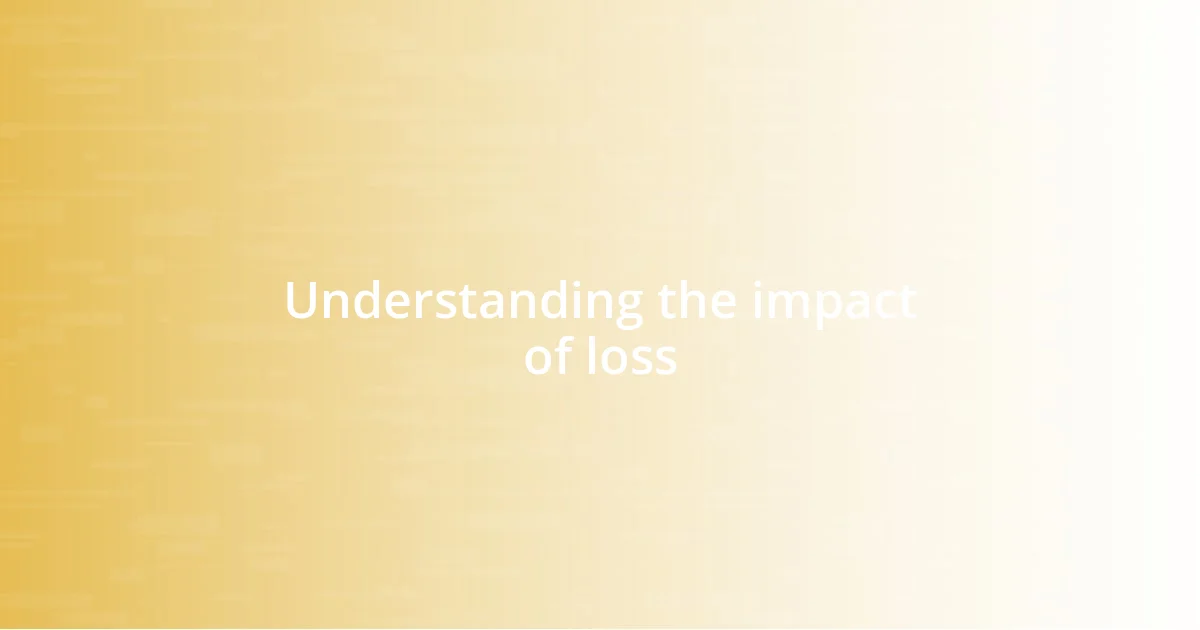
Understanding the impact of loss
Losing an award can feel like a personal defeat, almost like someone snatched a dream from your grasp. I remember a time when I thought I was a shoo-in for a recognition that had been my goal for years, only to watch it slip away. The wave of disappointment that washed over me brought a sense of self-doubt that I hadn’t anticipated—was my work truly that inadequate?
The impact of loss isn’t just about missing out on accolades; it can shake our confidence to its core. After my setback, I had to confront the lingering question: “Am I good enough?” This kind of introspection, while painful, ultimately led me to redefine what success meant for me, beyond just external validation.
Moreover, I’ve learned that loss can ignite a deeper resilience. There’s something transformative about picking ourselves up after a fall. It’s in those moments of vulnerability that we can cultivate grit and discover new passions. Have you ever experienced that shift? For me, diving into new projects became a source of joy, filling the void left by the loss with fresh enthusiasm and creativity.
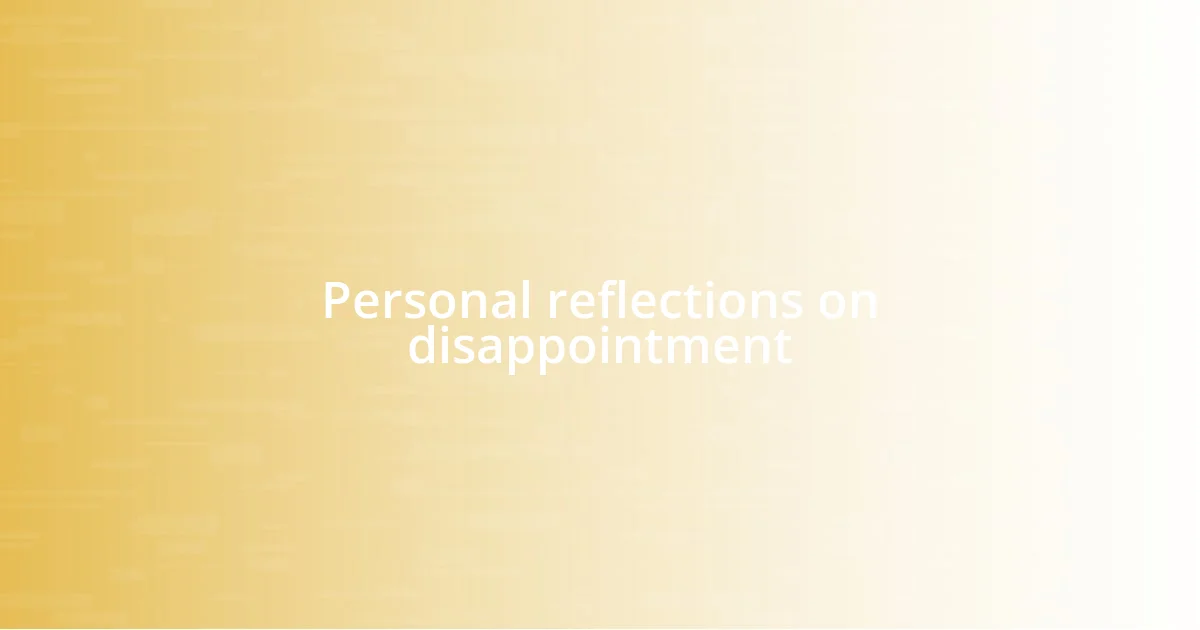
Personal reflections on disappointment
Disappointment can be an all-consuming emotion, and it often strikes harder than I’d expect. When I lost that award, I remember sitting alone in my workspace, staring blankly at my project that had once filled me with pride. It felt like my passion had been stripped away, leaving only a hollow shell of what I had created. It’s fascinating how something outside of ourselves can lead to such a profound inner crisis.
Reflecting on this disappointment has reshaped how I view setbacks. I learned to embrace it as a necessary part of my journey. This might sound strange, but I started to see my response to disappointment as a measure of my growth. Here’s what I took away from that experience:
- Emotional processing: Allowing myself to feel the sadness instead of masking it helped me heal more quickly.
- Clarity of purpose: Disappointments brought clarity about what truly matters in my work and life.
- Fuel for improvement: I discovered that my best projects emerged from times when I felt rejected, driving me to push harder and innovate.
- Community support: Sharing my disappointment with friends revealed that we all face similar struggles, fostering deeper connections.
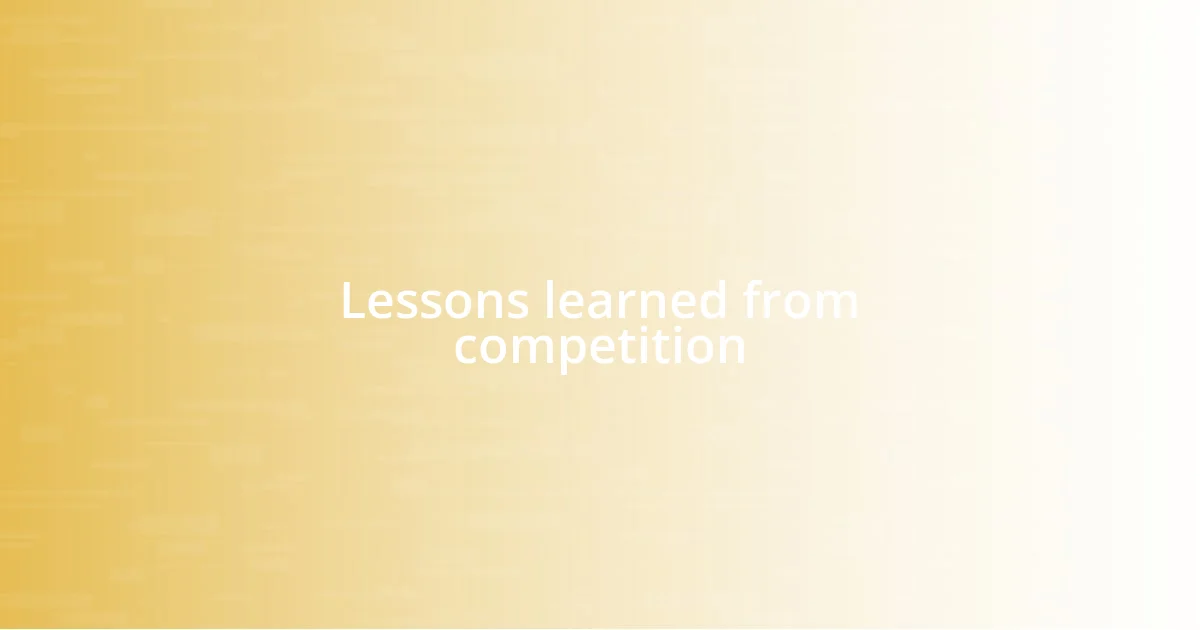
Lessons learned from competition
Losing in competition has taught me to approach challenges with a fresh perspective. Instead of viewing others as rivals, I’ve learned to see them as sources of inspiration. For instance, after my loss, I connected with some of the contestants. Hearing their stories opened my eyes; many faced their own hurdles, which made me realize that every journey is unique and fraught with difficulties. This shift from competition to camaraderie enriched my experience immeasurably.
A particularly eye-opening moment came when I cheered on a friend during her competition. The pride I felt in her achievement made me understand that success isn’t a zero-sum game. My passion for my own work grew as I discovered that celebrating others could fuel my ambition. This lesson in collaboration over competition has profoundly influenced how I interact within my community and redefine what winning truly means.
Interestingly, competition spurred me to analyze my strengths and weaknesses much more critically. I started to ask myself, “What can I learn from this experience?” This inquiry led to deeper self-reflection, highlighting areas I needed to develop. For example, I remember presenting a project I wasn’t totally confident about; I later realized that seeking feedback proactively could have turned the tide in my favor. It’s moments like these that emphasize the continuous journey of personal and professional growth.
| Aspect | Lesson Learned |
|---|---|
| Competitive Perspective | Shifting focus from rivals to collaboration creates a supportive environment. |
| Self-Reflection | Using competition as a tool for personal development highlights strengths and weaknesses. |
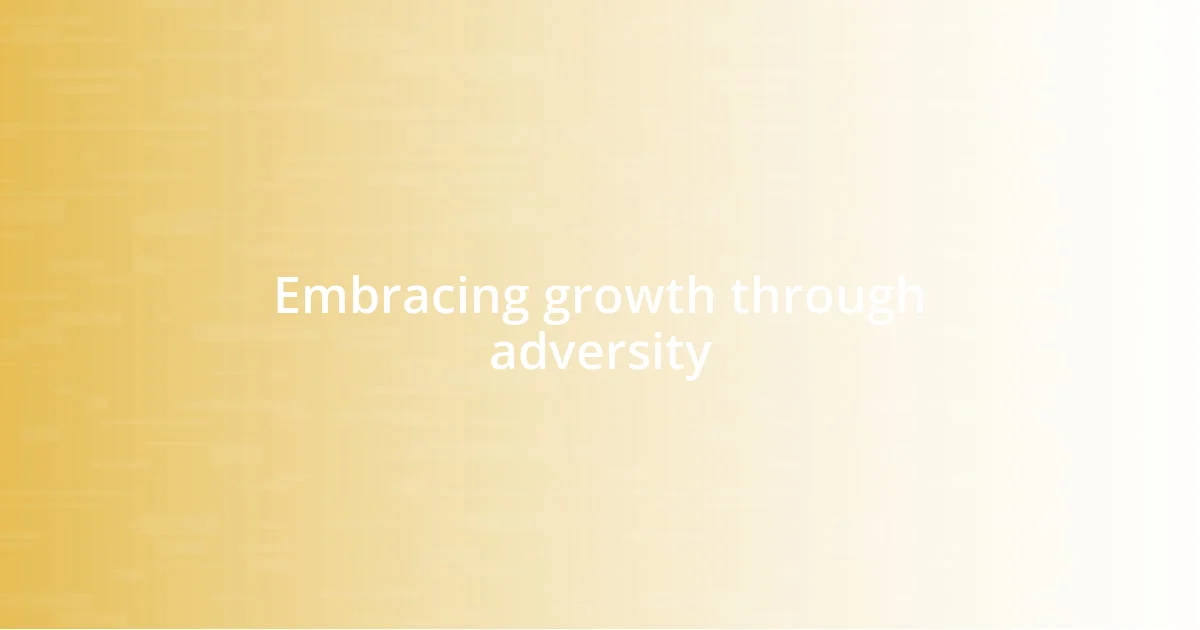
Embracing growth through adversity
Embracing growth through adversity has become one of my most profound revelations. After losing that award, I found myself questioning everything—my abilities, my goals, and even my passion. It felt like I was peeling back layers of my identity. Instead of retreating into self-doubt, I started asking: “What can this teach me?” That question opened a door to resilience I didn’t know I possessed.
I vividly recall a moment of clarity when I was journaling about that experience. I realized that every failure is a stepping stone, not a stumbling block. The harsh reality was tough to swallow, but it motivated me to innovate in ways I never had before. This growth spurt didn’t happen overnight; it required consistent effort and reflection. Every time I faced rejection, I pushed myself to dig deeper, to pivot my approach, and to embrace the unknown.
At times, the weight of disappointment felt heavy on my shoulders, but it also ignited a fire within me. I discovered the beauty of vulnerability—sharing my feelings with mentors led to invaluable advice that helped me see adversity as an opportunity. It makes me wonder, how many of us keep our struggles hidden, missing out on potential growth? Opening up ultimately fostered a sense of community and accountability that has enriched my personal and professional life in ways I could never have anticipated.
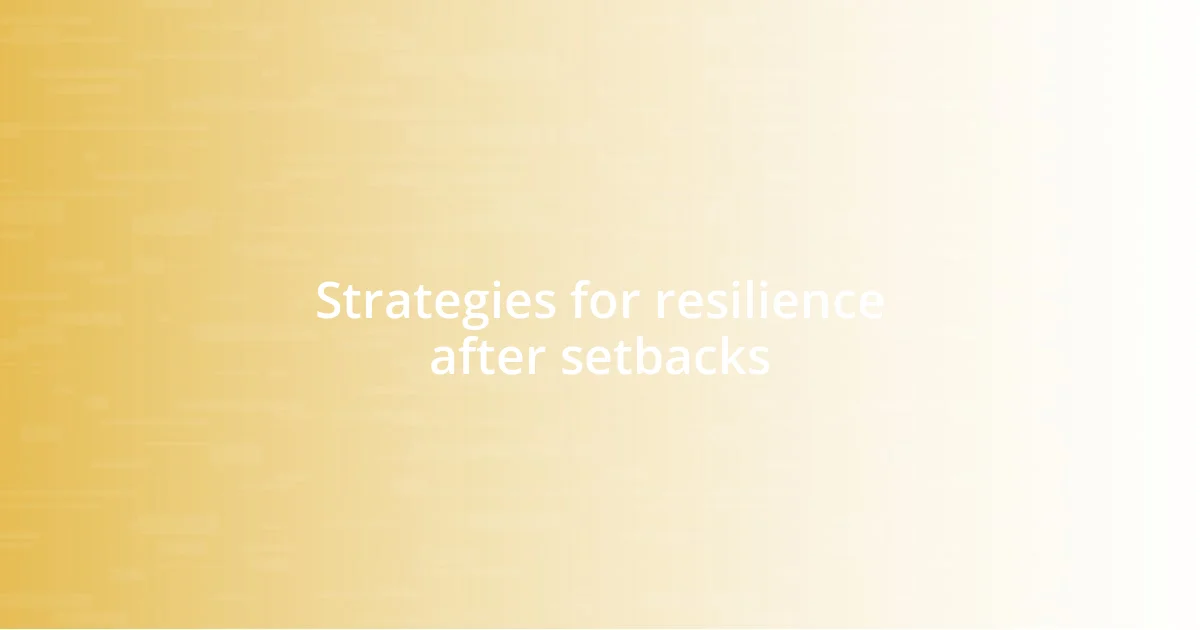
Strategies for resilience after setbacks
During the aftermath of my award loss, I stumbled upon a simple yet powerful strategy: embracing a routine of self-care. I began to prioritize small, daily rituals—like morning walks, journaling, or even indulging in my favorite books. It was amazing how these little things brought clarity to my mind, helping me build the resilience needed to bounce back. I often wonder, how many of us overlook the importance of taking care of ourselves in tough times, thinking we should just power through?
Reframing my mindset also played a crucial role in my recovery. Instead of viewing my loss as a complete failure, I began to see it as a critical learning moment. I remember attending a workshop shortly after, where the facilitator shared her own stories of setbacks. Her honesty resonated with me and led me to ask myself, “What if this loss is simply a necessary detour?” That shift in perception opened up a world of possibilities and liberated me from the negative spiral of despair.
Finally, I learned the value of reaching out to support systems. I realized that sharing my experiences with friends and family not only lightened my emotional load but also invited new perspectives. During a particularly tough day, a casual coffee chat with a friend transformed into a heartfelt discussion about dreams and disappointments. Was it vulnerability or strength that brought us closer? That moment reinforced the idea that resilience thrives in community, where connection fosters healing and inspires growth.
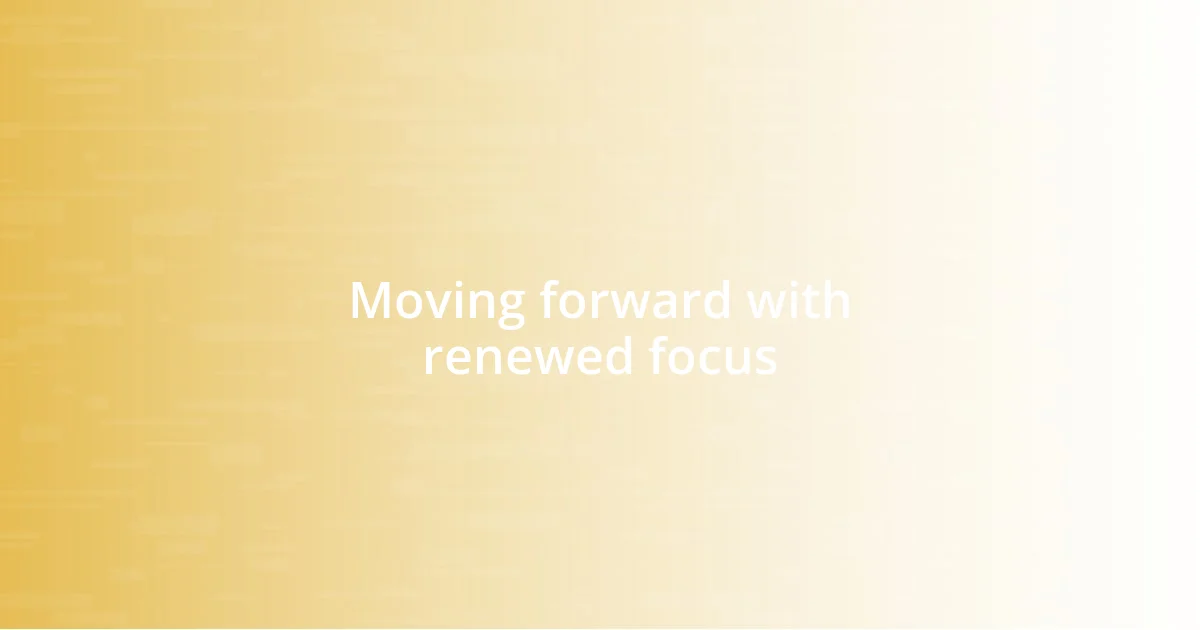
Moving forward with renewed focus
After the initial shock of losing the award, I realized I needed to recalibrate my focus. It was a pivotal moment when I found myself in my favorite coffee shop, notebook in hand, sketching new goals. I remember thinking, “What if this is the opportunity to redefine what success looks like for me?” Setting clear, actionable goals became my north star, reminding me to stay grounded even amidst the chaos of disappointment.
One day, while reflecting on my experience, I caught myself marveling at how setbacks could be deeply impactful. I decided to create a vision board, filling it with images and words that represented both my aspirations and lessons learned. Seeing it every day kept me energized and aligned with a renewed sense of purpose. Have you ever experienced the power of visualizing your goals? I found that the more I engaged with my aspirations, the easier it became to focus on what truly mattered.
Moreover, my perspective on collaboration underwent a transformation. Instead of viewing my work as a solitary journey, I began to incorporate feedback from peers much more openly. One brainstorming session turned into a lively discussion where we exchanged ideas and explored new routes together. I often think, how magical is it to realize we’re all navigating similar waters? Fostering that collaborative spirit illuminated pathways I hadn’t anticipated and deepened my focus on collective growth.
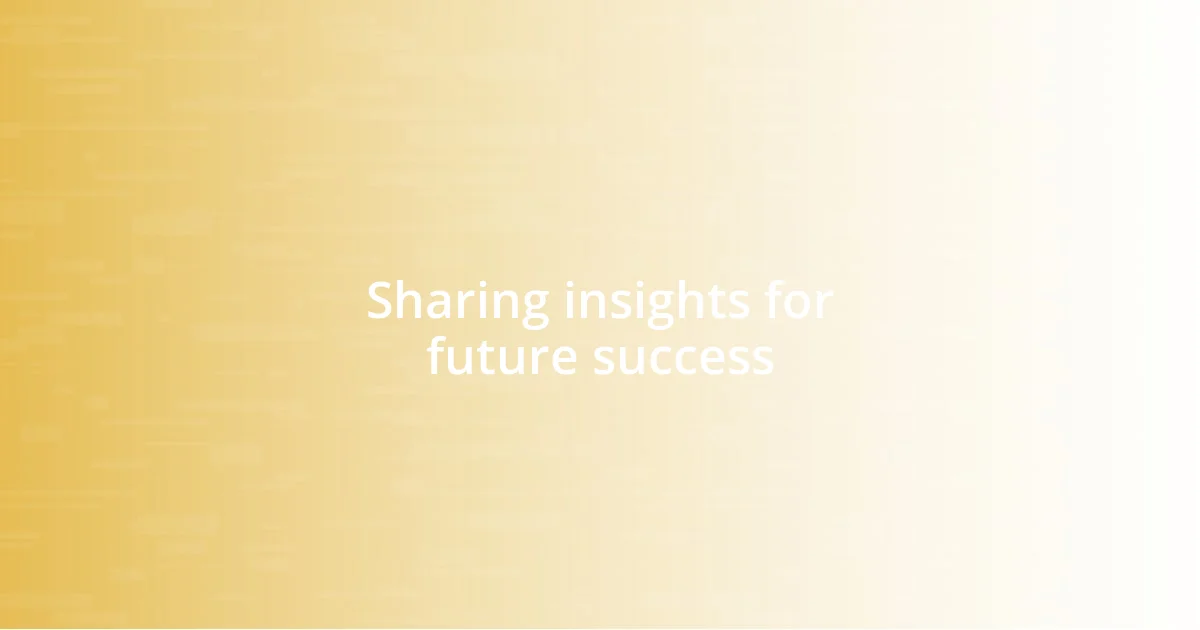
Sharing insights for future success
Reflecting on my journey, I’ve come to appreciate the art of sharing insights with others to pave the way for future successes. I remember sitting down with a mentor after my award loss, pouring out my frustrations and fears. As we talked, it hit me—how often do we miss the opportunity to gain wisdom from those who have navigated similar paths? Their experiences became invaluable lessons for my own journey, reminding me that vulnerability can lead to strength.
One poignant takeaway was discovering the power of honest feedback. I reached out to colleagues and asked them to share their thoughts on my work post-loss. It felt intimidating at first, but their suggestions opened my eyes to areas I hadn’t considered. I often wonder, isn’t it fascinating how external perspectives can shine a light on our blind spots? Embracing this feedback transformed my approach, leading me down a more intentional path toward growth.
Another significant insight was the value of defining my personal version of success. I recall a late-night brainstorming session where I scribbled down what fulfillment meant to me, free from societal expectations. This exercise wasn’t just freeing; it became a guiding principle. How often do we chase accolades without pondering what truly resonates with us? My experience taught me to chart my own course, one that reflects my unique passions and aspirations. Ultimately, these insights have helped me reshape not just my goals but also my mindset for the future.
